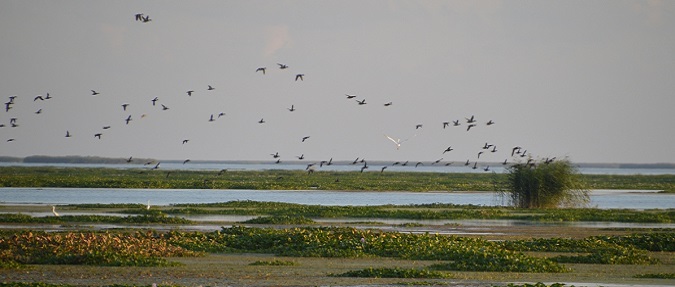
Gulf Coast habitat restoration projects on both sides of Louisiana are benefiting from the combined strength of two of the nation’s most passionate and effective conservation organizations, Ducks Unlimited (DU) and Coastal Conservation Association’s (CCA’s) national habitat program, Building Conservation Trust (BCT).
“The same coastal marshes critical for waterfowl provide habitat for most of our recreationally important fisheries, so it’s a natural fit for CCA and DU to work together, leverage our funding and multiply our conservation footprint,” said John Newman, past DU president and current BCT board member.
BCT contributed $75,000 to DU’s Gulf Coast Initiative during a tribute dinner to Newman in New Orleans. The funding will support projects in cooperation with the Louisiana Department of Wildlife and Fisheries on Rockefeller State Refuge in southwest Louisiana and Pass-a-Loutre Wildlife Management Area in southeast Louisiana. Both areas are on the front lines of coastal land loss and provide critical habitat for fisheries and waterfowl as well as ample public enjoyment opportunities.
“We pride ourselves at Building Conservation Trust on our ability to align with wonderful supporters and conservation partners like DU. With their help, BCT has been able to make some incredible progress towards restoring and conserving marine habitat over the past few years,” said BCT Executive Director Sean Stone. “There’s most definitely power in numbers as we focus on restoring and conserving our waters for generations to come.”
DU’s Gulf Coast Initiative focuses on habitat conservation and restoration for the continent’s most significant and threatened wintering area. The coastal marshes, prairies and rice lands of Texas and Louisiana are supposed to support up to 15 million wintering waterfowl each year. With dramatic rates of land loss, development pressure and water availability issues, the area’s waterfowl habitat is being lost.
“These same wetlands protect the communities of the Gulf Coast and provide jobs and enjoyment for its people, many of whom are hunters and anglers and support both organizations,” Newman said. “It’s our mission to ensure wetlands sufficient to fill the skies with waterfowl today, tomorrow and forever, but that habitat-focused mission provides for far more than ducks.”
Ducks Unlimited Inc. is the world’s largest nonprofit organization dedicated to conserving North America’s continually disappearing waterfowl habitats. Established in 1937, Ducks Unlimited has conserved more than 13.6 million acres thanks to contributions from more than a million supporters across the continent. Guided by science and dedicated to program efficiency, DU works toward the vision of wetlands sufficient to fill the skies with waterfowl today, tomorrow and forever. For more information on our work, visit www.ducks.org.
